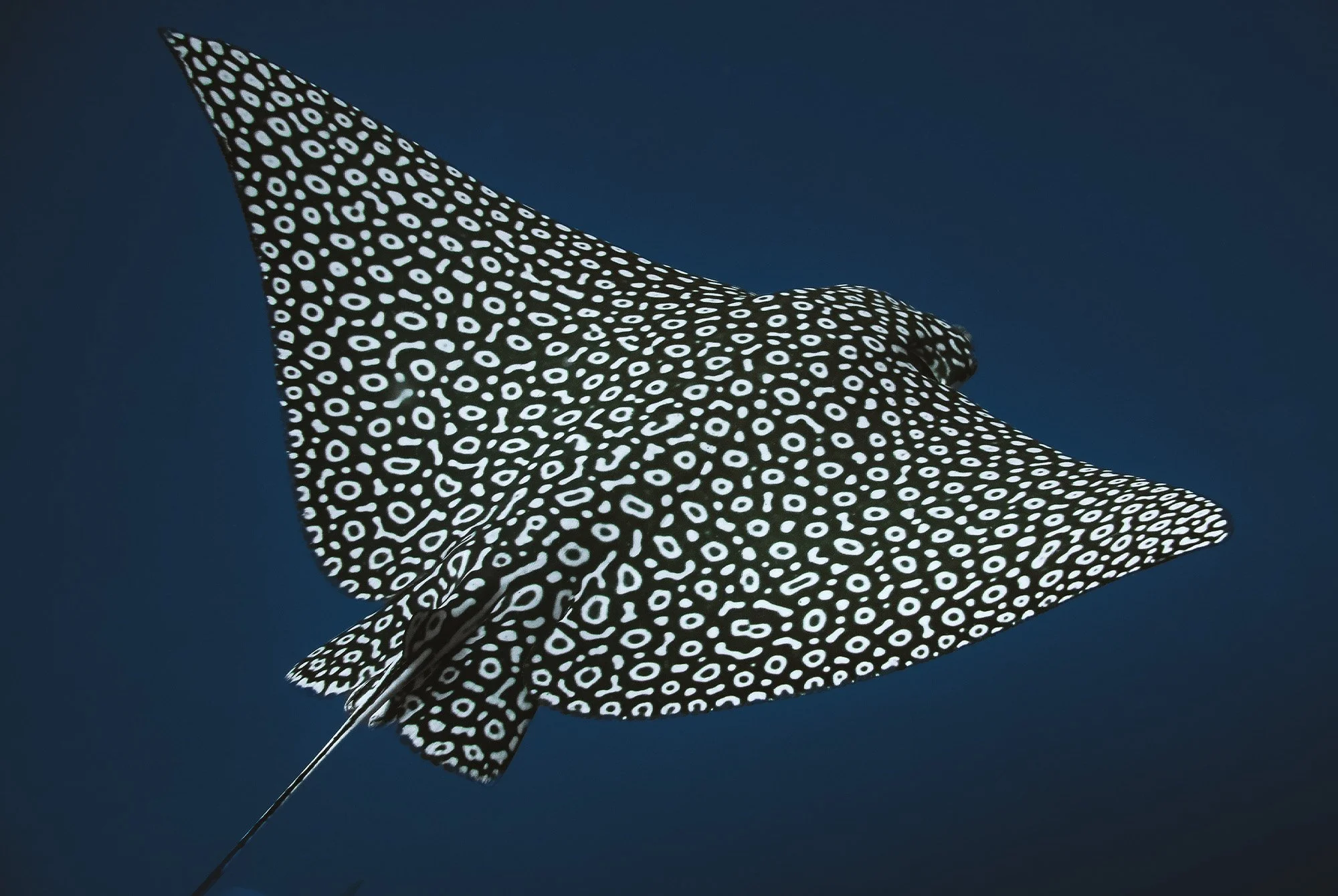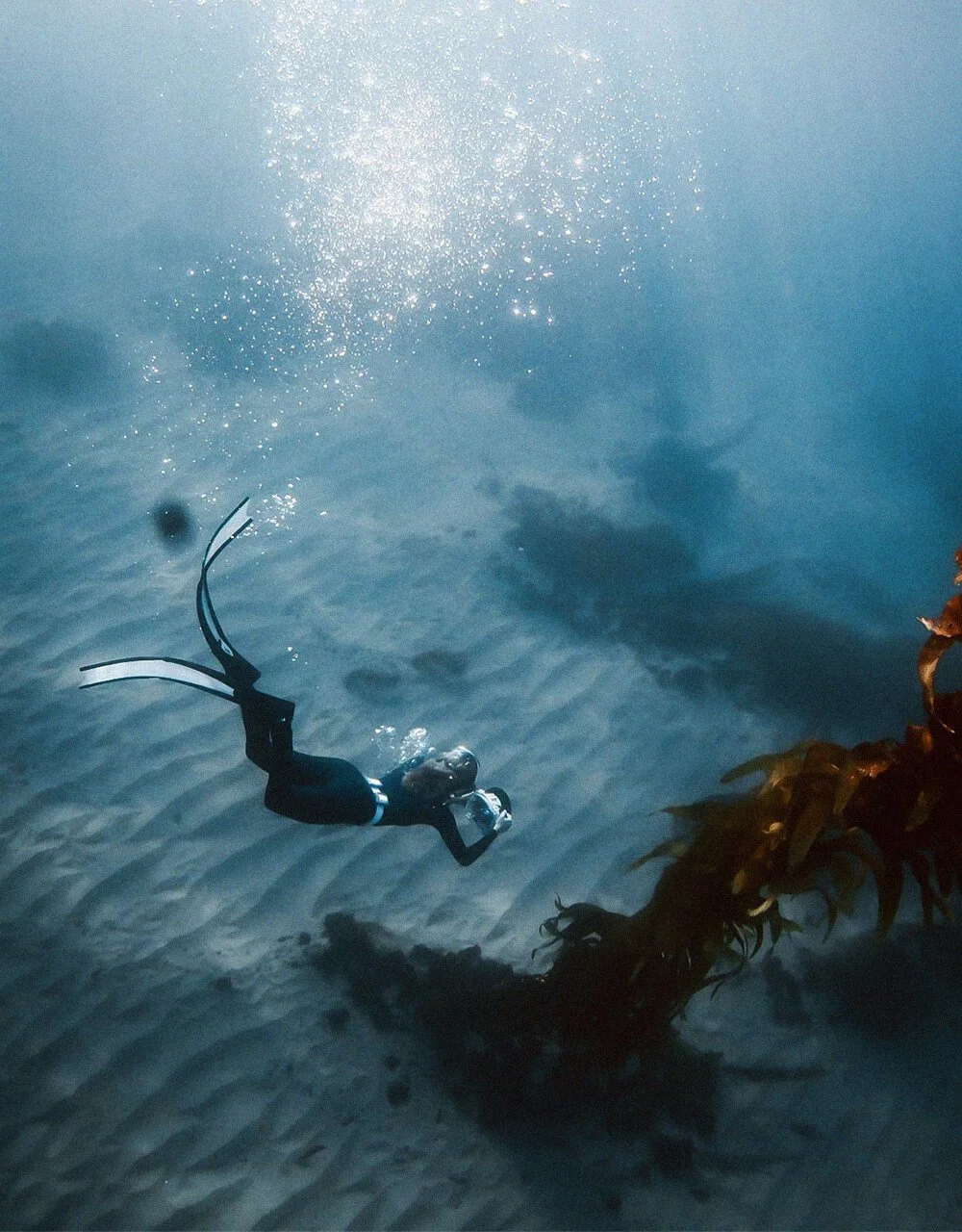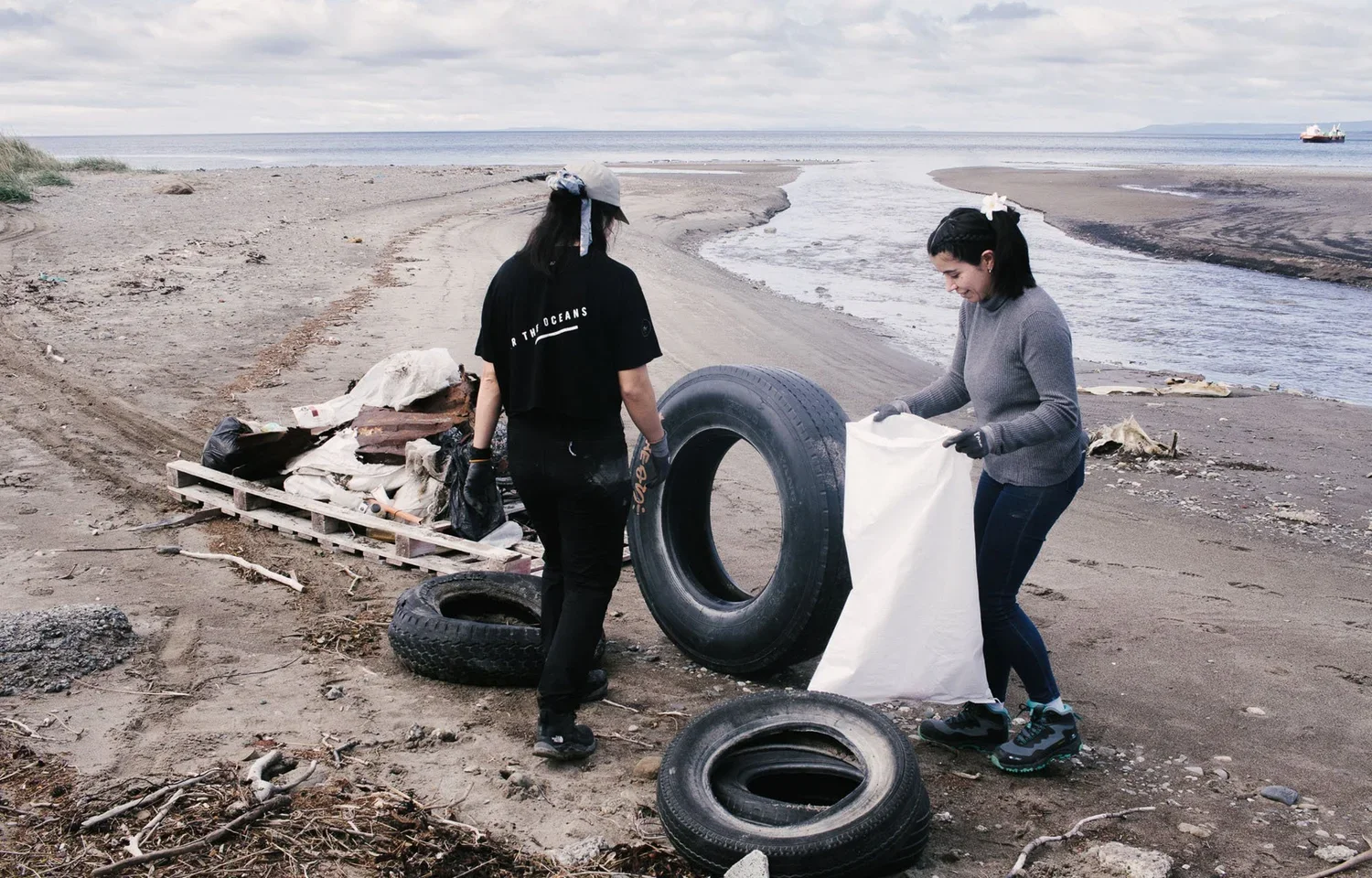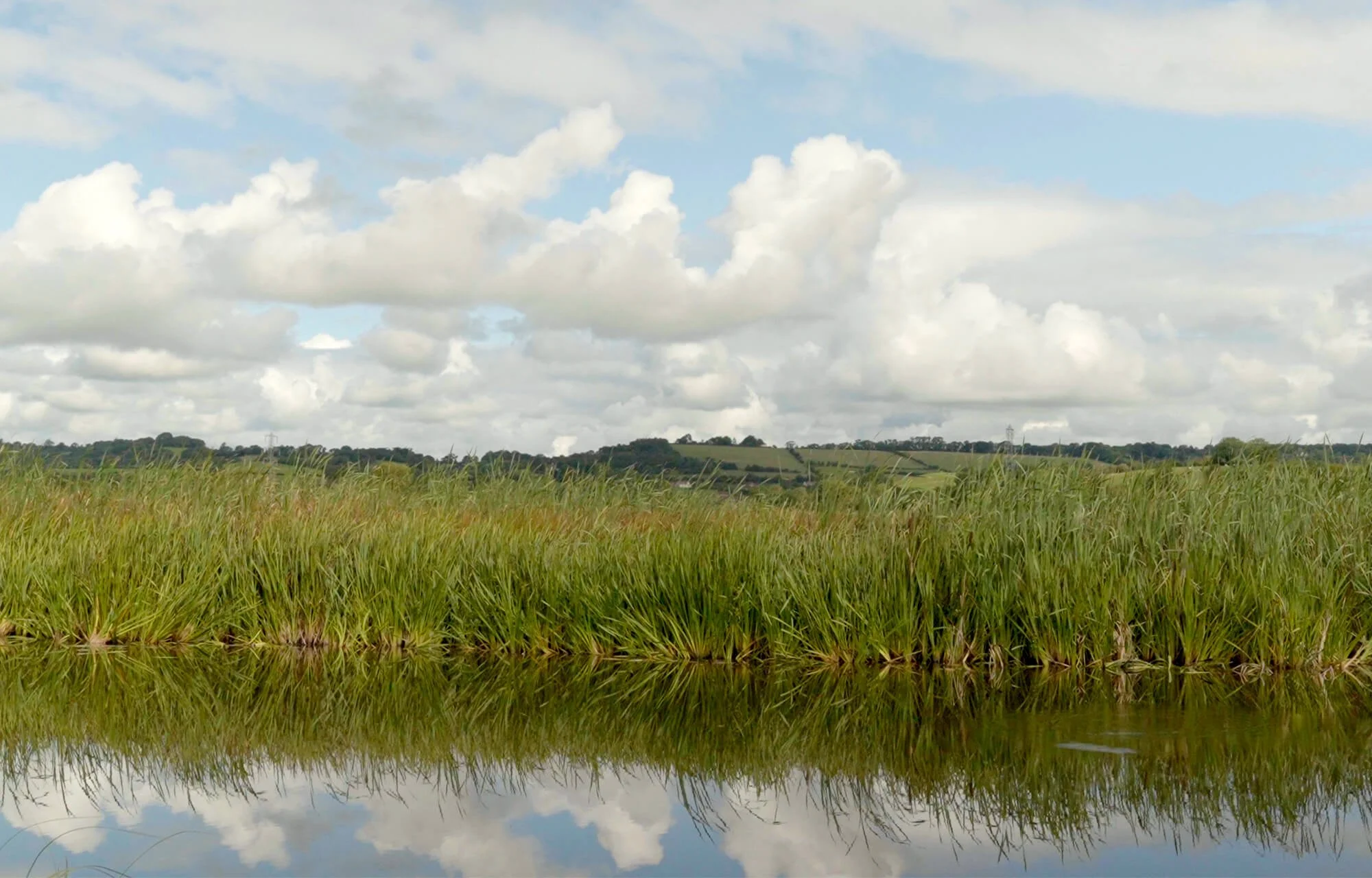PUBLIC RECORDS ON WHY UNDERSTANDING YOUR IMPACT IS COUNTERCULTURAL
We talk to the cofounders of a cultural space in New York that puts ecology and the environment at the core of its mission
When Francis Harris and Shane Davis, cofounders of Public Records, pick up the phone, they’re sitting in heavy New York traffic on their way to check out a property in South Brooklyn, one that’s situated on the waterfront. They talk excitedly about the idea of taking it over and integrating water cleanup initiatives into the project but cut themselves off and acknowledge that despite their enthusiasm, this is probably a conversation best saved for another time. However, it’s a neat window into their work ethic and their desire to use buildings as a conductor for rethinking what counterculture actually means, and how the protection of the environment is always at the forefront of their minds.
Harris and Davis founded Public Records in 2017. It’s a multifunctional cultural space in Gowanus, Brooklyn, that’s at once a vegan restaurant called The Atrium, a music venue, a record store, a club space, a cafe and bar, and The Nursery, an open air garden in the middle of New York. The building was initially America’s first ASPCA animal shelter, a legacy that has informed their vision for the future. While Public Records might be a many-headed hydra, it’s consistent in its approach across everything it does – everyone is there to have a good time, but with awareness of the safety of other people, of the planet, and of animals.
We’ve been linking up with Public Records for a series of cleanups in New York over the past couple of years – last week’s was the seventh we’ve done together. Given our close partnership, it made sense to dig a little deeper into the Public Records world and hear from its founders about reshaping what rebellion really looks like.
“Music brings hundreds of thousands, millions of people together, and music has the power to bring people together under a common cause.”
Francis Harris
Q&A
I want to start by talking about your very strong commitment to environmental practices and exploring the links between culture and ecology. You've got The Nursery, an open-air garden and The Atrium, a restaurant with a vegan menu. I want to talk about the history of that, where that MO came from and why it feels important for it to be such a core part of what you do.
Francis Harris: I've been a vegan most of my life, not necessarily for ecological reasons, more due to a love of animals. But that's not the reason why Public Records is vegan. It was originally an animal shelter, the original ASPCA in the United States, so it felt appropriate that we would make it a plant-based menu. Public records is a restaurant, it’s a bar, it’s a cafe, an event space and a music venue. We wanted to flip the script on what a music venue could be. Counterculture is not really about being irresponsible, it's about being responsible. It‘s understanding what your impact is and how your impact affects the rest of the planet, whether it be how you interact with animals, how you interact with your environment or what the footprint is that you're leaving behind when you're having a good time. We want to instill a different image into what it means to have a good time. You have a good time, but with awareness of the safety of other people, the safety of the planet and safety of animals.
It's also a core ethos of hardcore and DIY punk scenes, right? I grew up around a lot of straight edge punks and hardcore bands – veganism and responsibility was a very big part of their lives. What you were just saying made me think of that.
Francis: It's funny you say that because I come from hardcore music. I was in punk bands all throughout the 90s and we used to operate a Food Not Bombs chapter out of this anarchist space that I lived in Detroit. We used to do shows – there'd be books, there'd be records and there'd be vegan food. When we first saw that building it reminded me of a lot of those types of DIY spaces that I grew up in. I was straight edge in high school and through part of college, but I was always vegan. A lot of the people that I grew up with in the hardcore world, when you see them today, they're all still vegan. A lot of them are vegan chefs and they're involved in vegan food or they're still the same people that they were. I was recently connected to Tony Joy from Universal Order of Armageddon and Moss Icon, and he's still the same exact guy he was in 1996, he's just the older version of it. He's still a vegan, he's still a leftist, he still believes in everything he's doing and he's still operating as a DIY artist. I feel pretty strongly that that was a true countercultural movement that still has power today. It's having a resurgence through reissues of all these records that nobody knew about, so there's a renewed desire to understand what that scene was about. It's a nice moment for me as the old guy to know that I was a part of something that wasn't bullshit. That's a big part of Public Records, the spirit of Public Records.
How does this pro-environmental manifesto that’s at the core of Public Records manifest itself day to day?
Francis: In the United States, it's really hard to be a carbon neutral space, mostly because of the archaic mob mentality of distribution networks. But we do the best we can. One of the reasons why we built an elaborate tap cocktail system, beyond it being fast and easy to deliver to customers, is that you can buy larger format bottles to batch cocktails so that you're reducing glass waste. We don't serve any beers or sodas out of bottles. Everything is made out of aluminum recyclable stuff because we try not to use that much glass and we try not to produce that much waste. We don't use any single-use plastics. We worked with Oceanic Global to get our sustainability badge. They work through everything – from how our garbage is being collected, to make sure that the company that is doing composting is actually doing composting, to looking at our practices in front and back of house. A measure of how you're doing in terms of sustainability is ‘what does your garbage look like?’ I feel like I'm obsessed with our garbage, looking at our garbage and making sure that it's getting smaller and smaller instead of larger and larger. We'll continue to work towards making sure that sustainability is our number one goal in our business practices, which is super challenging given the volume that we do, but it just takes a lot of communication and leadership to get people inspired by a single mission – to understand that we can be responsible business owners and still be profitable. We can be responsible in the music space without those terrible photos of an empty music venue with plastic cups and garbage and shit all over the floors, which is totally not underground and not interesting. I hate these kinds of photos, the aftermath of music festivals. We really need to change the narrative on this and it can only happen through inspiring people to want to do good. So that's what we try to do on a week to week basis.
We’re really happy Parley and Public Records have been partnering on cleanups. How have the community responded to them and what do you feel like the city is getting out of it?
Francis: Well, the city never responds to us even though we sent the photos to the precinct and to our city council members about what we're trying to do! But it's inspired the staff and our community. We don't like to talk about sustainability, we like to do things in the sustainability space because there's enough pontificating out there. We're really against virtue signaling and we try not to do it, we try to lead through action, so when this opportunity came about it made us really excited. I ran out to Rockaway with Adidas Runners last summer and we cleaned up the beach. That was one of my favorite days of the summer and it was actually really inspiring because when we were cleaning up a lot of people commented, community members and people on the beach thanked us. There was a lot of gratitude from the local community there. It's a really inspiring thing so I hope we can continue to do it and take it to a new level if it's possible.
I'm fascinated by The Nursery. Where did that idea come from and could you go into a little bit more detail about the space and how it's used?
Shane Davis: The nursery lot was part of the property from the start, back in 2017 when we found the building. For many years we workshopped different ideas of how to activate it and the idea was always ‘How do you create some sort of strategy or model to enliven this just bleak industrial, lifeless, vacant lot?’ We got very lucky because most building types in New York are dense, 2,500 square foot gridded blocks. There's not much dynamism, there's not much light and air, there's definitely not much nature. Our building was such a unique typology, being this institutional campus blessed with this big garden, these three massive old trees. There was always this inherent landscape condition of the property and regardless of our own intentions, we were forced to engage with these natural elements from the start. This lot was always this opportunity – it was big, it was 10,000 square feet, it was directly adjacent. What can we do with this creatively to really up the ante in how we're engaging with nature?
A couple of years later we finally came up with this scheme and what’s interesting about it is that we were already using that space for storage. We had a bunch of these storage containers already on the site being utilized and we were like well, what if we actually use what's already there? At the same time, we had this large collection of plants in our garden that didn't really have a home during the winter months. So we said, what if as the core function of this space, it could actually house these plants, but at the same time house people, host music events, other types of hospitality and a multitude of types of events. That was the beginning basis of the idea. We ended up building the first structure with this wooden truss and polycarbonate system that sits at top of the existing storage containers. Then we built a DJ booth out of another container which we brought in, then the landscape around it was instilled by building off our initial intention.
“We don't want to be ‘right’. We just want things to change.”
Shane Davis
What role do you think that music has to play in the climate crisis? Can art change the world?
Francis: That is a big question! Music tends to bring large groups of people together, and so maybe it has the ability, especially for those of us who are producing events and artists who are making music, to rally people. If you can already rally them under music, you can rally them to understand that everything that you do makes an impact and that even the smallest thing makes a difference. It's easy to think that nothing you do is going to make an impact considering just how insane the world is and seeing the climate disaster unfolding in front of us. But music brings hundreds of thousands, millions of people together, and music has the power to bring people together under a common cause. I think if we start to frame our ability to bring those people together as a way of also talking about things like saving the planet and talking about acting responsibly, that can make a big impact. I do think the younger generation thinks about these things. I think the older generation like us, who have now graduated to being the people presenting the music and building the spaces and producing the events that bring all these people together, have an opportunity to reframe the narrative a little bit. That's what we're trying to do here.
Do you think that people take inspiration from what you guys are doing at Public Records? Do you think that putting the planet at the core of what you do will become more commonplace with regards to cultural spaces and music venues?
Francis: I don't want to be so egotistical as to think that people will be inspired by what we do – we put our heads down and we do things not because we want people to give us a pat on the back, we just do it because it’s what we believe in. I'd like to believe that when you're acting with a clear intention, an honest intention, the optimistic side of me thinks that people are inspired by honest intentions. There's a lot of talk in the club world about safer spaces in terms of identity politics and things like that. We like to take that even further and say that there needs to be safer spaces for animals and for the ecosystem, and that we play a part in this ecosystem. If we want to really create safer spaces and in our world, we need to think about that as well. You can't just say ‘yeah, we're a safe space’, but you're using single use plastics, creating a lot of trash, and buying into the capitalist inversion that something that's cheaper is somehow counter-cultural. Like the idea that veganism is somehow only for rich people. That's bullshit. That's trying to turn the cause on its head. It's not an elitist thing to say no to the meat industry and to say no to the insane waste of that industry. I think it's the opposite of that. We don't really preach about veganism, we just proudly talk about these things. We try to keep the narrative very positive and very forward-thinking because we don't think that people respond very well to being preached at.
We just try to lead by example. It's a sad thing to see when you see a music festival that has all these amazing progressive initiatives, incredible crowds and supports underrepresented communities. But then there's a photo of them roasting a pig. It's just extremely dystopian to me. What about the pig?
How receptive have artists and patrons been to your ecological mission?
Shane: I would say they’ve been receptive for the most part until we tell them, ‘please don't bring your plastic bottle’. I don't think anybody has a bad intention when they're walking around with a plastic bottle, but sometimes we'll not get the best response when we tell somebody, ‘we’re a plastic free place, could you please dispose of your plastic in a recycling bin? We're relatively strict about that kind of stuff. It's good. We don't want to be ‘right’. We just want things to change. To me, a lot of my feelings around this stuff is as much spiritual as it is ideological, if not more so. When I order my coffee and ask for no plastic, it's less because I'm trying to prove a point and more so because I literally won't enjoy consuming something into my body that I know is harmful for the planet. And I think until humans can really feel that pain on a spiritual level, it's kind of hard for them to wrap their head around it psychologically.
Do you have any favorite pieces of music that relate to the conversation we’ve just been having, artists or songs that communicate an ecological message?
Shane: Harold Budd is an artist that makes me feel deeply connected to space, time and nature and all of those really innate, human, worldly feelings. John Hassell too.
Francis: I did a whole series during the pandemic when we had our public access channel called Ambient Nature – mixes full of ambient and Japanese environmental music set to found footage from the internet archive of nature and of animals. I directly associate my interest in this type of music and environmental music with my love of animals and of nature. Ironically, we were just talking about this, that if somebody would say, ‘what's your dream, what are you working so hard towards?’ I would say ‘I'm working so hard towards building a studio in the middle of the forest and having a bunch of farm animals and dogs’. I directly associate my love of this type of music with nature and with the planet. So there's many records that I would associate with that, like those original Brian Eno records, or Laraaji. We actually just presented Laraaji in this partnership with the Whitney last Friday, and he performed on the rooftop of the Whitney at sunset. There were 350 people there and not a single person was speaking. Everybody was dead silent, without being told to be quiet in a public space.


























